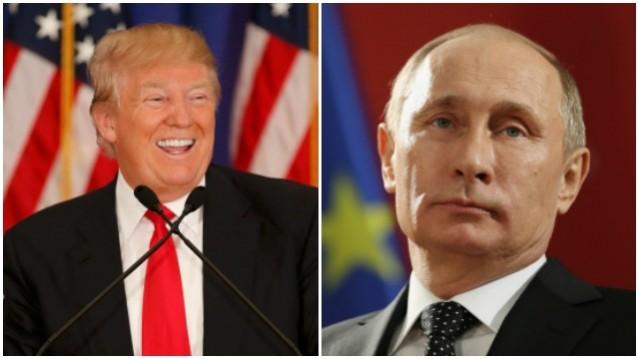
Tensions between the United States and its long-term Cold War foe Russia have reached a new peak after US President Donald Trump ordered missile strikes on a Syrian airbase on Thursday, stirring fears of a new impending war.
Russia is a Syrian ally and backs Syrian President Bashar al-Assad in the country's six-year long civil war, while the US has long advocated for the Syrian dictator's ouster. Despite their differing stand on Assad, Washington and Moscow had agreed to join hands in fighting Islamic State (ISIS) militants in the region.
Russia had welcomed Trump's presidential win in the 2016 US elections considering his soft spot for Moscow and President Vladimir Putin. However, the dynamics between Trump and Putin appeared to have changed after Thursday's incident.
On Thursday, Trump ordered missile strikes on a Syrian airbase after a horrific chemical attack on the residential part of Syria's Khan Sheikhun killed 70 civilians, including 20 children and 13 women. Syrian activists claimed that the attack had come from the Assad-led government's airstrikes although the Syrian army denied involvement in the chemical airstrike.
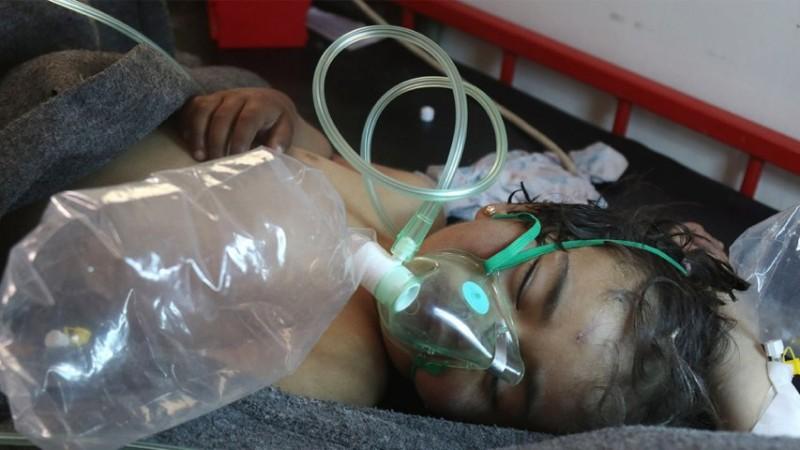
Worsening US-Russia ties
The attack on Russia's ally has angered Kremlin, which put out a statement saying that the US missile strikes in Syria could seriously damage the already worsening relations between the countries.
The US relations with Russia deteriorated sharply in 2014 following Russia's annexation of Crimea. Former US President Barack Obama's administration and Western countries had subsequently slapped severe economic sanctions against Moscow for the nation's actions in Crimea.
Trump and his administration, until Tuesday's chemical attack, had maintained that they would not interfere in the Syrian civil war, and their primary focus in the region would be to fight ISIS. Trump, on many occasions, had also suggested lifting some of the sanctions against Russia.
Trump, however, seems to have changed his stance on the whole Syria issue, casting doubt over Russia's optimism about its future relations with the US.
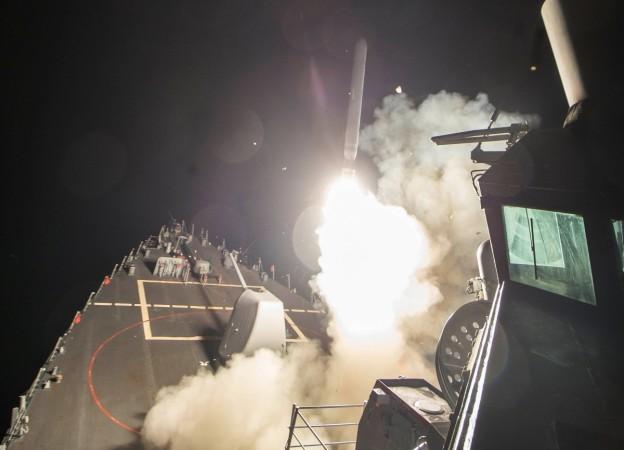
Will the strikes prove to be a tipping point?
The US missile strikes in Syria have almost pushed the relations between the two countries to its worst in years, with Russia's withdrawal from the air safety pact reached with Washington in Syria in 2015.
The Russian Ministry of Foreign Affairs, on Friday, ended the US-Russia agreement seeking to minimise the risk of any in-flight incidents in Syria.
The memorandum of understanding between the nations was reached in 2015, when Russia began its official military campaign to support Assad. The deal between Washington and Moscow included general safety protocols for aircrews to follow, like maintaining professional airmanship, and also specific provisions to avoid collision and unwanted conflict, like use of specific communication frequencies and the establishment of a communication line on the ground.
Putin's spokesperson Dmitry Peskov said that the Russian President sees the US strikes in Syria as "aggression against a sovereign state."
"This step by Washington deals a significant blow to Russian-US relations, which are in a sorry state as it is," Peskov told state news agency Itar-Tass. Peskov added that the Russian President considers the US strike on Russia a "violation of the norms of international law."
Russia has also called for an emergency United Nations Security Council (UNSC) meeting to discuss the US strikes. Putin was quoted as saying by agencies that he believed the US strike broke international law and had seriously harmed US-Russia relations.
Will the two countries head for war?
Probably not, as reports state that the US was in communication with Russia before the missiles were launched to avoid any Russian casualties. Around 100 Russian soldiers and personnel are at the Syrian airfield and have facilities there.
According to the United States Department of Defense, communication between the US and Russia took place before the missile strikes through the "deconfliction line," which is controlled by the US military and operates out of the al-Udeid airbase in Qatar.
The "deconfliction line" is typically used to protect pilots from both countries as they fly sorties over Syria to ensure that neither party attacks each other, and also to avoid any possibility of collisions.
Pentagon spokesman Captain Jeff Davis said the Russians were informed of the imminent strikes in "multiple conversations" through the deconfliction line on Thursday. Pentagon's claims indicates that Russia knew of the imminent strikes on the Syria base.
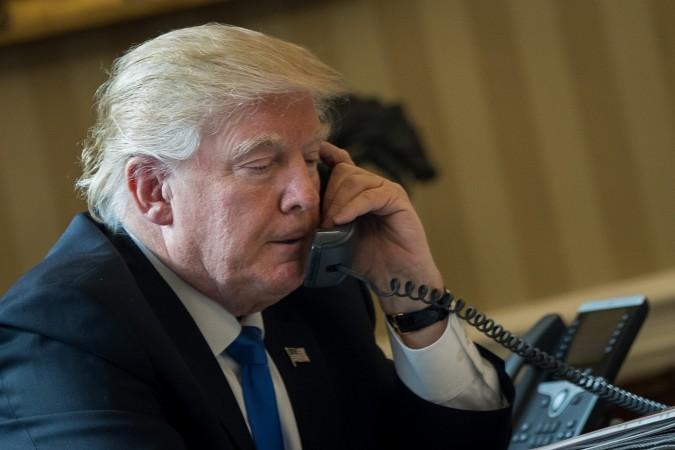
Communication lines still open
Even though Russia had announced on Friday that it will end the MoU reached between the two nations in Syria, the Pentagon on Saturday said that the communication channel between the US and Russian military is still open.
"Our [military-to-military] communication line is still open and they are answering on the other end," a senior military official told reporters at the Pentagon. "We've had discussions with the Russians after the attack to confirm that the MOU is still active," he said.
Thr Pentagon official's statement suggests that Russia is still keeping open the communication channel between the two countries.
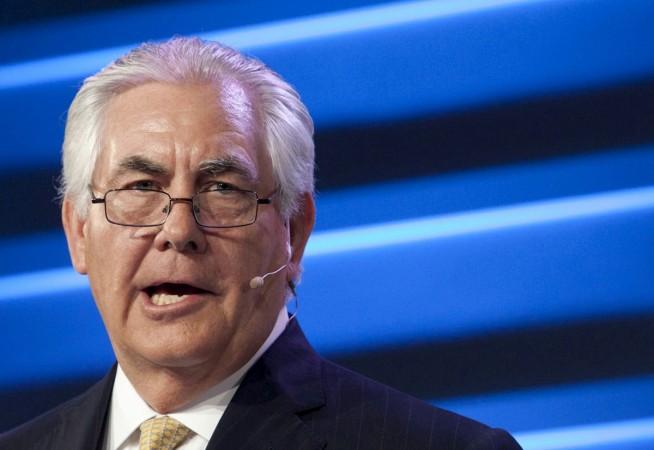
Rex Tillerson's visit to Moscow could prove pivotal
US Secretary of State Rex Tillerson will visit Moscow next week and is set to be the first person to do so from the Trump administration since the Republican assumed presidency in January.
Tillerson's visit to Russia, at such a crucial time, could prove pivotal and may pave the track of Washington and Moscow's future relations. Tillerson will meet Russian Foreign Minister Sergey Lavrov on Tuesday, and the chemical attack and the US strikes are set to be the main talking points of their meeting.
Tillerson has been strict in his take against Russia over its involvement in the chemical attack stating that it had "failed in its responsibility" to deliver on a 2013 deal it helped broker to destroy Syria's chemical weapons arsenal.
"So, either Russia has been complicit, or Russia has been simply incompetent on its ability to deliver," Tillerson said.
However, the Secretary of State's imminent visit to Moscow points that there is still room for discussion between the two nations.
Senior State Department officials have described Tillerson's visit as an "exploratory trip" aimed at determining any potential for cooperation, adding that no decisions to increase cooperation between the nations had been made yet.
Russia will also expect Tillerson to explain Washington's stance on the whole Syria issue in the meeting, which would provide clarity to the whole kerfuffle.














